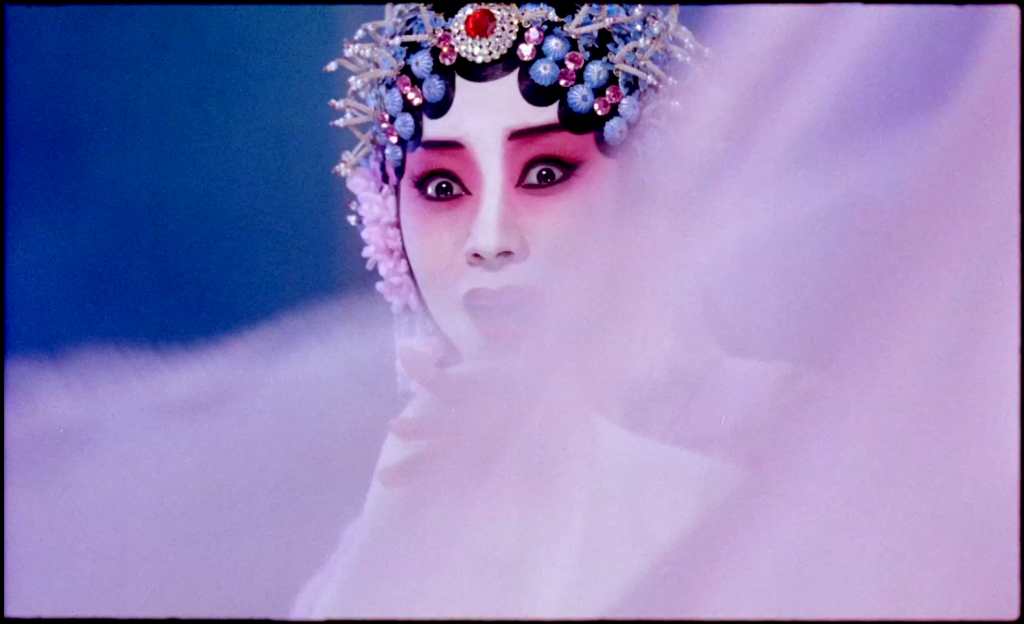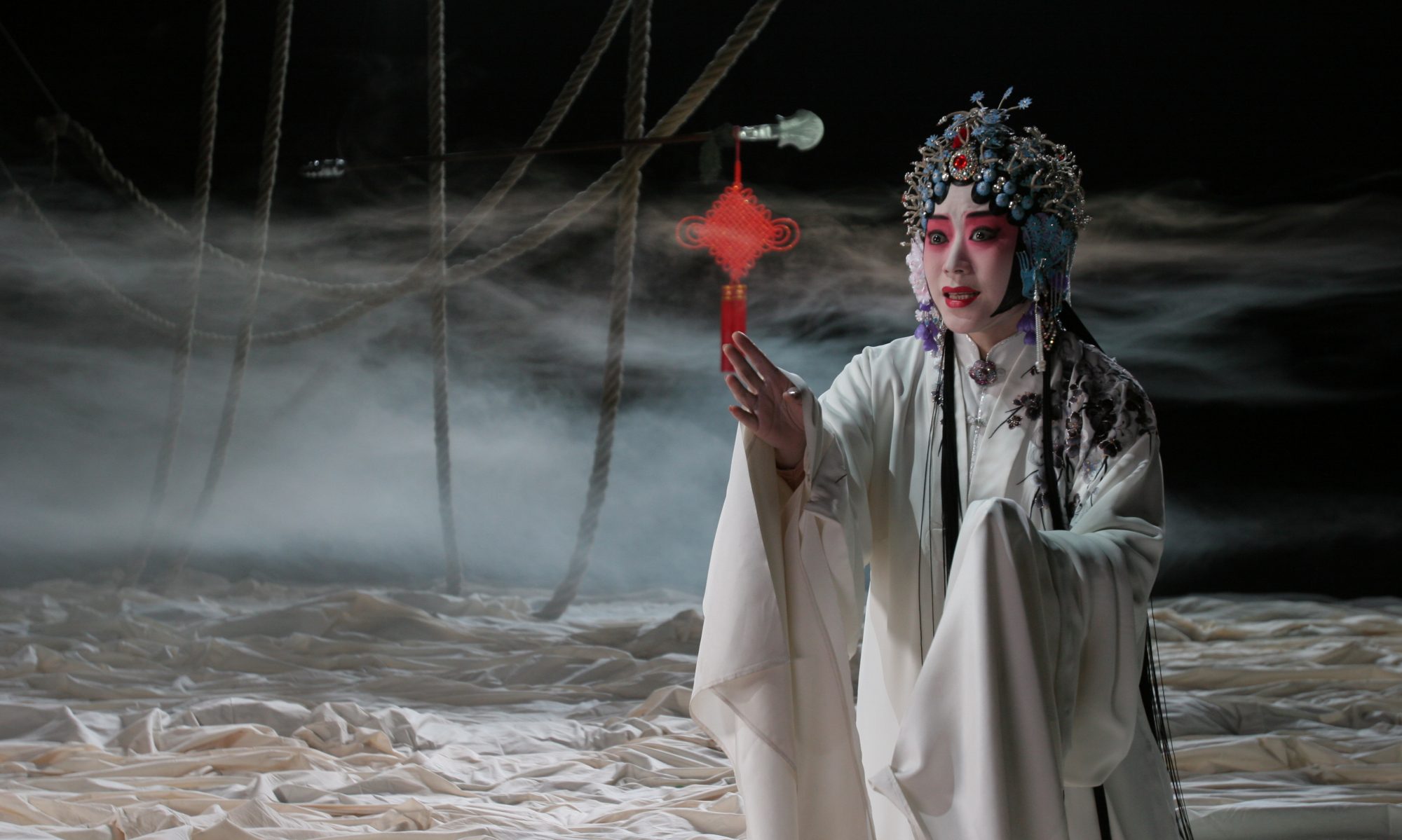Dream of the Bridal Chamber
with director Guo Baochang and cinematographer Hou Yong
Thursday, February 21, 2019 – 7:00pm
For more information, click here.

Renowned Chinese director Guo Baochang introduces the North American premiere of his “conceptual, multimedia” Peking Opera film Dream of the Bridal Chamber (Chungui meng). Created in 2005 but suppressed when it fell afoul of the censors, the film is an adaptation of an antiwar Peking Opera created in 1925 for stars Cheng Yanqiu and Yu Zhenfei about newlyweds who are forcibly separated after only three days when the husband is conscripted. Guo’s radical reinterpretation, which he also cowrote, is gorgeously shot with heavily saturated colors by cinematographer Hou Yong. Showcasing the multiple attractions of Peking Opera, the film blurs the boundaries between stage and cinema, dream and reality, history and fantasy.
Post-screening conversation with filmmakers and Judith Zeitlin (East Asian Languages & Civilizations), João Pedro Cachopo (Cinema & Media Studies), and others.
(China, 2005, 88 min., DCP)
Beijing-born director Guo Baochang graduated from the Beijing Film Academy in 1965. In 1972, he was hired at the Guangxi Film Studio; in 1984 he moved to the Shenzhen Film company. An accomplished writer, actor, and producer as well as the director of Shadow of a Ghost (1981), Wu Jie (1984), and Red Fists (1991), among other films, he is best known for directing and creating Grand Mansion Gate (2001), a 40-episode historical drama series.
Hou Yong is a Chinese filmmaker and cinematographer. Since graduating from the Beijing Film Academy in 1982 in the same class as Fifth Generation directors Zhang Yimou, Chen Kaige, and Tian Zhuangzhuang, he has collaborated with many of China’s major directors, among them Zhang Yimou. He has also directed several films including Jasmine Women starring Zhang Ziyi.
Sponsored by the Film Studies Center, the Department of East Asian Languages and Civilizations, the Department of Cinema and Media Studies, the Franke Institute for the Humanities, UChicago Arts, the Committee on Theater and Performance Studies, the Department of Music, and the Center for East Asian Studies with support from a Title VI National Resource Center Grant from the U.S. Department of Education.
